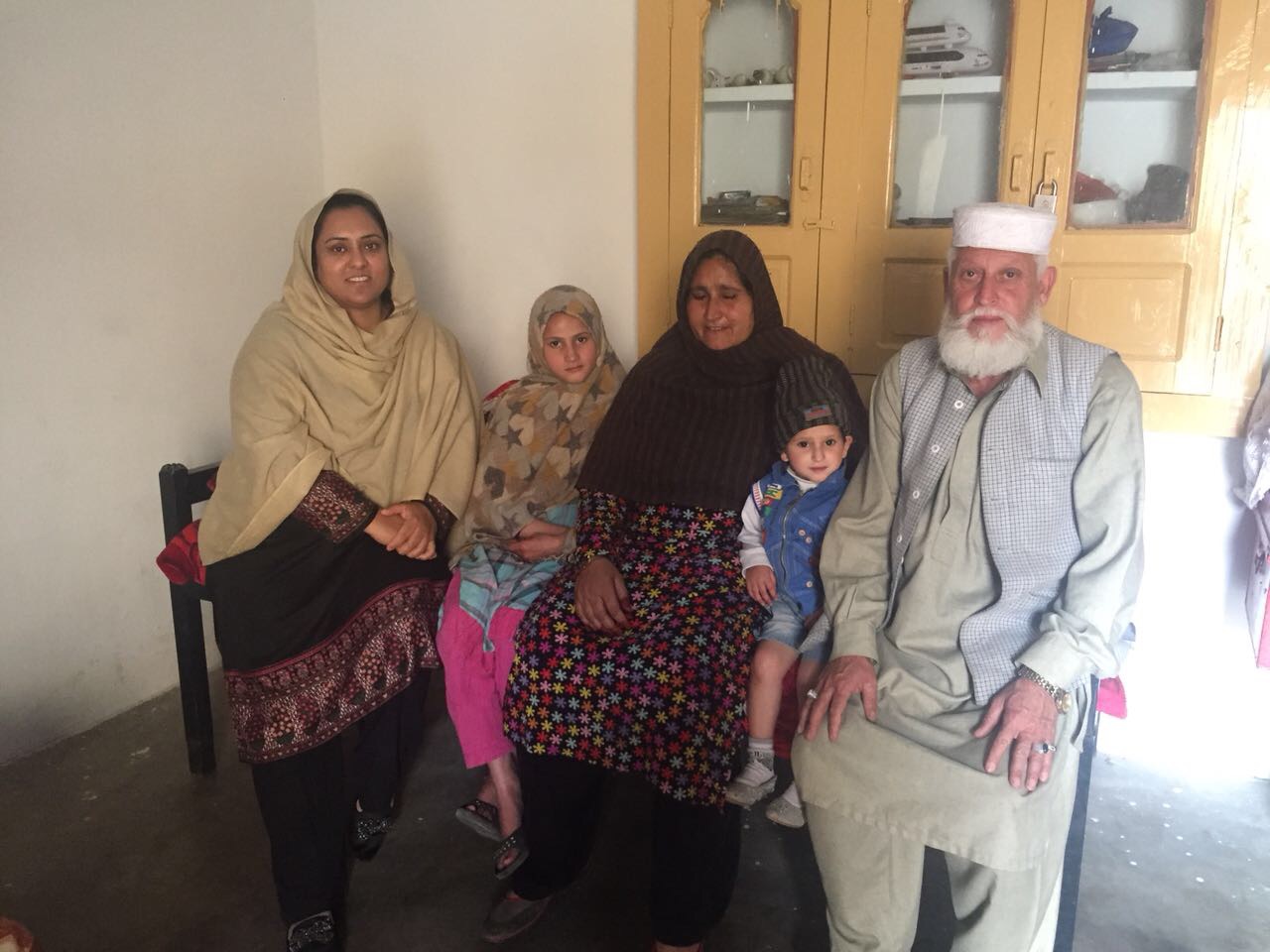

Background
RMF’s menstrual hygiene management (MHM) work in Pakistan manifests in a myriad of unique ways. Our winterization project, funded by LDS Charities, aims to support and rehabilitate internally displaced persons (IDPs) returning to District Swat during the bitter winter months. As part of our winterization package, we include an MHM kit developed according to UNICEF Dignity Kit Guidance. The number of kits required for each family was evaluated in a dignified manner during a face-to-face interview by RMF monitoring and evaluation staff with the families. The contents of each MHM kit include sanitary napkins, cotton underwear, soap, and green tea. During distribution of the packages, recipients were often the men of the family, and accepting MHM kits in a public manner was a first for them.

A New Conversation
An interesting development arising from the introduction of MHM kits to these homes was that it allowed the doors to open for communication within families. Mrs. Najeed Khan, in a private conversation held on RMF’s health clinic premises, said that for the first time, the topic of menstruation was discussed with her husband when she told him that they needed more sanitary napkins, as one of their daughters had heavy bleeding days. Such a topic would have been taboo in their household just a few months ago. The men of the family typically do not want to hear any details of such “woman issue” topics, especially when it comes to discussing their daughters, and consider it too embarrassing to acknowledge.
The most refreshing aspect was Mr. Najeeb’s response. Not only was he willing to hear out the topic, but also was questioning how sanitary napkins are better than reusable strips of cloth. For the first time in his life, he went to find out the cost of sanitary napkins to see how much it would affect the monthly budget if they were to indulge in regular purchase. So today, the Khan household has broken the cultural barrier of communication on the taboo topic of menstruation.

Background
Real Medicine Foundation arrived in Pakistan in late 2005, and has since continued to provide humanitarian support to internally displaced persons (IDPs), underserved communities, and vulnerable groups. Building on local relationships and expertise developed through our recent earthquake relief and ongoing health clinic project in District Swat, RMF Pakistan began a 6-month program to assist IDP families returning to their homes in high-altitude, remote areas of District Swat. The program has been made possible by support from LDS Charities and targets 162 of the most vulnerable IDP families repatriated to District Swat within the previous 2–3 months.
Objectives
- Provide relief shelter i.e. winterized tents, plastic floor mats, carpets and minor repair of damaged houses
- Provide uncooked food rations and cooking fuel
- Provide warm clothing and blankets
- Provide family hygiene kits and menstrual hygiene management (MHM) kits
- Provide primary health care via outreach satellite clinics and a hub clinic
More Reports on: Winter Relief and Health Services for Rehabilitation of Returning IDPs Archive
Country Page: Pakistan
Initiative Page: Winter Relief and Health Services for Rehabilitation of Returning IDPs
